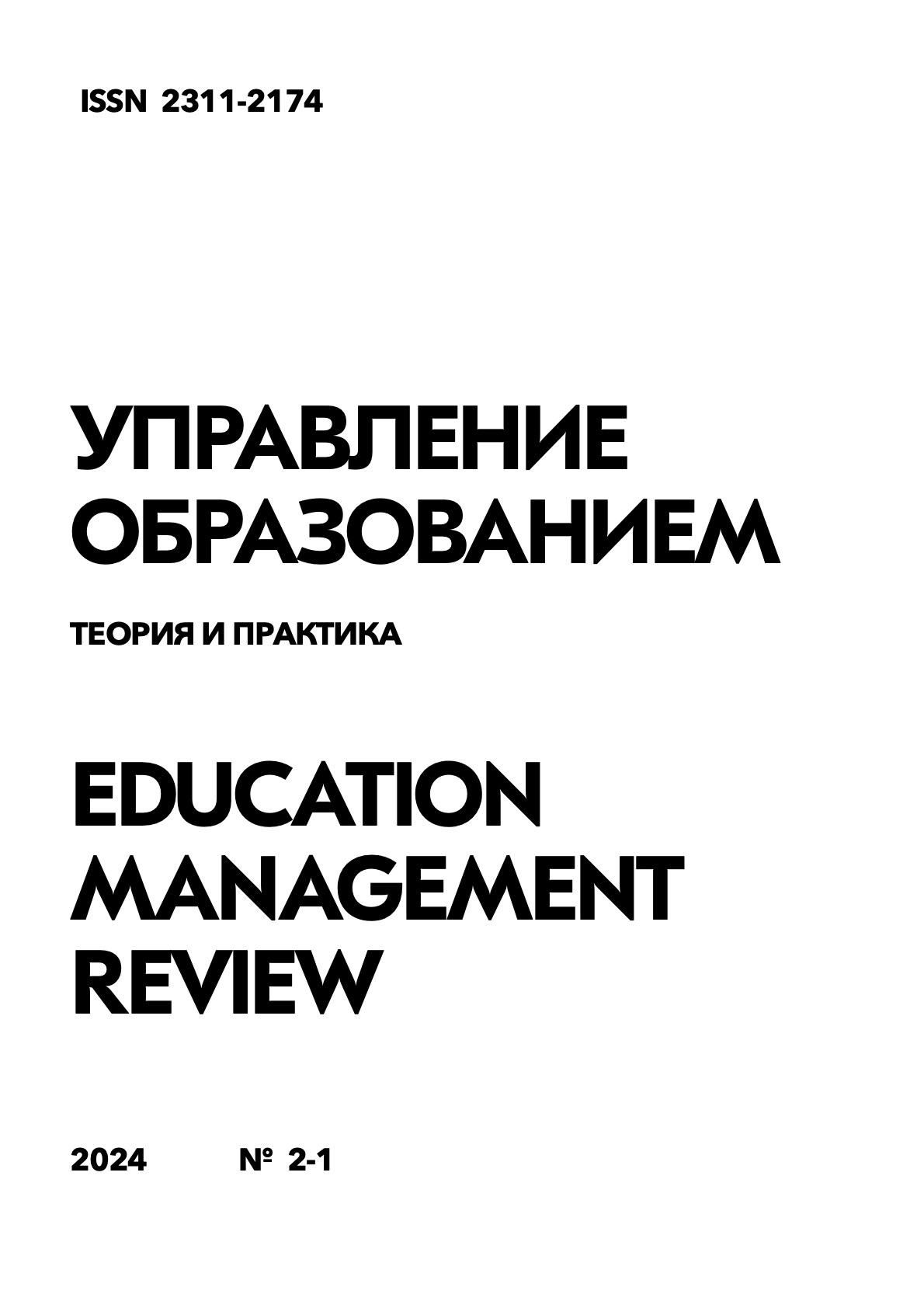A differentiated approach to teaching English in non-linguistic universities: strategies and methods of implementation
DOI:
https://doi.org/10.25726/u5117-0029-0576-xKeywords:
differentiated approach, English language teaching, non-linguistic university, professional orientation, individual characteristics, learning strategies, teaching methodsAbstract
In modern conditions of globalization and internationalization of education, English language proficiency is becoming an integral component of the professional competence of graduates of non-linguistic universities. However, traditional approaches to teaching English often do not take into account the individual characteristics and needs of students, which leads to a decrease in motivation and effectiveness of the educational process. This article is devoted to the study of a differentiated approach to teaching English in non-linguistic universities as one of the most promising areas for improving the quality of language training. The purpose of the study is to develop theoretical and methodological foundations and practical recommendations for the implementation of a differentiated approach to teaching English in non-linguistic universities, taking into account the specifics of professional orientation, the initial level of language training and individual characteristics of students. The methodological basis of the research consists of personality-oriented, competence-based and communicative-activity approaches to teaching foreign languages. The work uses such methods as the analysis of scientific and methodological literature, pedagogical observation, questionnaires, testing, statistical data processing and pedagogical experiment. In the course of the study, criteria for differentiating English language teaching in non-linguistic universities were developed, including professional orientation (technical, economic, legal profiles), the initial level of language training (elementary, basic, advanced) and individual characteristics of students (type of thinking, leading channel of information perception, strategies for language acquisition). Based on these criteria, experimental groups of students (n=120) were formed, in which differentiated strategies and methods of teaching English were tested. The results of the study indicate a significant increase in the effectiveness of English language teaching in experimental groups compared with control groups. Thus, the average academic performance in the experimental groups increased by 28% (from 67% to 95%), the level of motivation to learn English increased by 32% (from 54% to 86%), and the degree of student satisfaction with the quality of language training reached 94%. At the same time, the highest results were achieved in groups with a technical training profile and an advanced initial level of language training.
References
Авдеева Е.Л., Жердева О.Н., Шелкова С.В. Лингводидактические, психолого-педагогические аспекты преподавания иностранного языка с учетом вызовов системы образования в эпоху цифровой экономики: колл. монограф. Москва: Научные технологии, 2019.
Гарипова ГР, Изимариева З.Н. Полимодальность восприятия как фактор повышения успешности овладения иностранным языком // Мир науки, культуры, образования. 2023. № 3(100). C. 117-119.
Грузина Ю.М., Мельничук М.В. Анализ зарубежного опыта по формированию и развитию молодежной политики в сфере образования, науки и инноваций // Российский гуманитарный журнал. 2018. Т. 7. № 6. C. 452 - 463.
Гусева Н.В. Диагностика результатов обучения иностранному языку курсантов военных вузов как педагогическая проблема. Мир образования - образование в мире. 2018. № 1(69). C. 240-243.
Дебдина Е.Г, Зубанова С.Г. Обучение английскому языку и организация научной работы студентов в формате «дистант» (на примере Московского авиационного института) // Мир науки. Педагогика и психология. 2022. Т. 10. № 4. C. 1-17.
Жукова Н.А. Формирование иноязычной грамматической компетенции студентов неязыкового вуза // Мир науки, культуры, образования. 2019. № 3(76). С. 528.
Зубанова С.Г., Ошкова В.А. Особенности научно-исследовательской работы студентов института иностранных языков в авиационном вузе: к вопросу о сочетании научной и воспитательной работы // Мир науки, культуры, образования. 2023. № 2(99). C. 21-25.
Кошелева И.Н. Оптимизация обучения английской грамматике: от правил к разумному осмыслению // Вестник Кемеровского государственного университета. 2018. № 1. С. 201-207.
Левченко В.В., Мещерякова О.В. Стратегии формирования грамматической компетенции в профессионально ориентированном обучении иностранному языку бакалавров неязыкового вуза // Балтийский гуманитарный журнал. 2019. Т. 8. № 3(28). С. 83-88.
Мельничук М.В., Калугина О.А. Эффективность обучения иностранному языку в вузе: компоненты эмоционального и интеллектуального // Филологические науки. Вопросы теории и практики. 2021. № 8. C. 2627-2632.
Нестерова С.В. К проблеме обучения коммуникативной грамматике иностранного языка в вузе // Вестник ПНИПУ. Сер. Проблемы языкознания и педагогики. 2016. № 2. С. 130.
Ростовцева П.П., Гусева Н.В. Развитие мышления у студентов с использованием рефлексивных технологий в процессе обучения // Мир науки, культуры, образования. 2021. № 2(87). C. 314-316.
Санакоева З.Г. Эффективные методы и стратегии преподавания иностранных языков в разноуровневых группах // Мир науки, культуры, образования. 2023. № 1(98). C. 62-64.
Фаримова А.А. Мотивация студентов к изучению английского языка // Наука и образование сегодня. 2019. № 10(45). C. 49-51.
Azaryad Shechter D. Overcoming the Grammar Barrier in Foreign Language Learning: The Role of Television Series // Journal of Language and Education. 2018. № 4(2). pp. 92-104.




